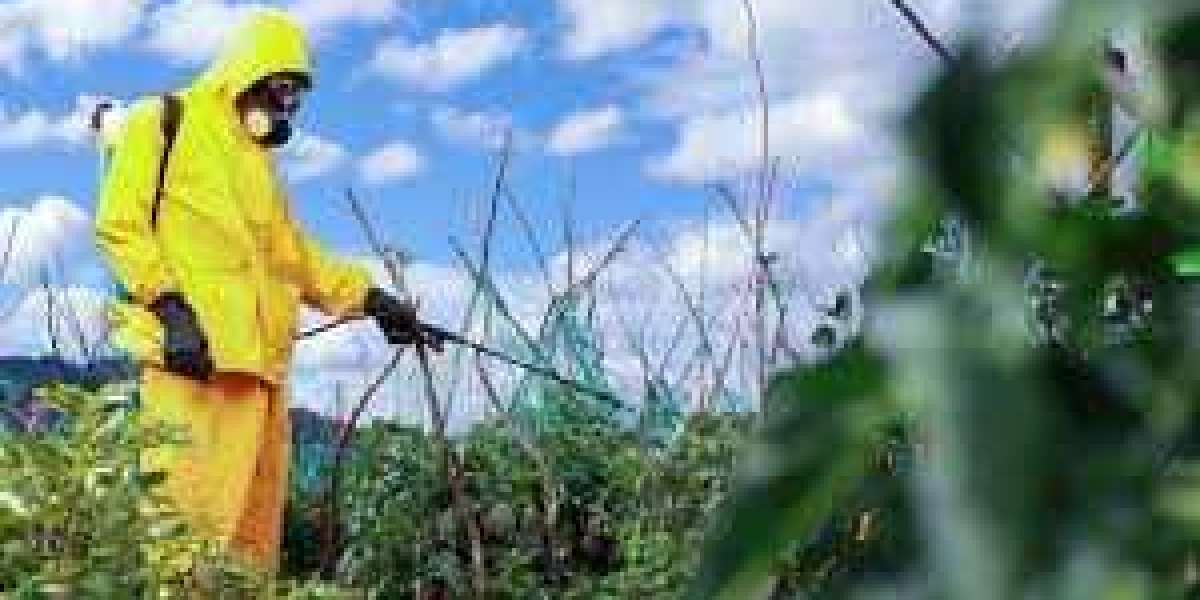Pesticides are an essential part of modern agriculture. They help farmers protect their crops from pests, diseases, and weeds, ensuring a steady supply of food for the growing population. However, improper use of pesticides can harm human health, wildlife, and the environment. This is why understanding how to handle and apply them safely is crucial.
In this article, we will explore the basics of pesticide safety, why education is important, and how proper training can benefit individuals and communities.
What Are Pesticides?
Pesticides are chemicals or natural substances used to control pests that harm plants, animals, or humans. These pests include insects, weeds, fungi, and rodents. Pesticides come in various forms, such as sprays, powders, and granules.
There are several types of pesticides, including:
- Insecticides – Target insects that harm crops or spread diseases.
- Herbicides – Used to eliminate unwanted plants or weeds.
- Fungicides – Prevent or stop fungal infections in plants.
- Rodenticides – Control rodents like rats and mice.
While these substances are helpful, they must be used correctly to prevent harm.
The Risks of Improper Pesticide Use
When pesticides are not handled or applied properly, they can pose serious risks to people and the environment.
- Health Risks: Exposure to pesticides can cause short-term effects like skin irritation, nausea, or dizziness. Long-term exposure might lead to more serious health issues such as respiratory problems or even certain types of cancer.
- Environmental Impact: Pesticides can contaminate soil, water, and air, harming wildlife like birds, bees, and fish. They can also reduce biodiversity by affecting non-target species.
- Crop Damage: Overusing pesticides can lead to the development of resistant pests, making future control more difficult.
Understanding these risks highlights the importance of learning the right methods of pesticide handling and application.
Why Training is Essential
Pesticide training teaches people how to use these substances safely and effectively. This is particularly important for farmers, pest control workers, and others who regularly work with pesticides.
Proper training provides the following benefits:
- Health Protection: Trainees learn how to minimize exposure and protect themselves, their families, and others around them.
- Environmental Safety: Courses teach how to prevent contamination and reduce harm to ecosystems.
- Cost Efficiency: Knowing the correct dosages and application methods reduces waste, saving money.
- Compliance with Laws: Many regions have strict regulations on pesticide use. Training ensures individuals follow these rules to avoid penalties.
Key Topics Covered in Training
Pesticide training courses cover various essential topics to ensure safety and effectiveness. Some of the main subjects include:
- Understanding Labels: Every pesticide product has a label with important information, including instructions, warnings, and safety measures. Reading and understanding these labels is vital.
- Protective Gear: Trainees learn about personal protective equipment (PPE) like gloves, masks, and goggles, which shield them from harmful exposure.
- Mixing and Application: Courses demonstrate the right way to mix pesticides and apply them using equipment like sprayers.
- Storage and Disposal: Proper storage prevents accidental poisoning, while correct disposal methods protect the environment.
- First Aid and Emergency Response: In case of accidental exposure, knowing what to do can save lives.
Who Should Take Pesticide Training?
Pesticide training is not just for farmers. Many individuals and professionals can benefit from these courses, including:
- Agricultural workers
- Gardeners and landscapers
- Pest control technicians
- Researchers working with pesticides
- Homeowners using pesticides for personal gardening
Even those who only use pesticides occasionally can benefit from learning how to handle them responsibly.
Choosing the Right Training Course
There are many options available for those looking to get trained in pesticide safety. When selecting a course, consider the following factors:
- Certification: Ensure the course is recognized by relevant authorities in your area. Certification may be required to legally purchase or use certain pesticides.
- Content: Look for courses that cover all the key topics, including safety, regulations, and best practices.
- Format: Decide whether you prefer in-person classes, online courses, or a combination of both.
- Instructor Expertise: Check if the course is taught by qualified professionals with experience in the field.
- Cost and Duration: Choose a program that fits your budget and schedule without compromising on quality.
How Pesticide Training Benefits Communities
When individuals are properly trained, the benefits extend beyond personal safety and effectiveness. Communities as a whole gain from safer and more sustainable practices.
- Reduced Accidents: Proper training decreases the likelihood of pesticide-related accidents, protecting both users and bystanders.
- Environmental Conservation: Trained users are more likely to follow environmentally friendly practices, reducing pollution and preserving local ecosystems.
- Better Food Security: By controlling pests effectively and safely, trained individuals help ensure healthier and more abundant crops.
- Informed Decisions: Educated users are better equipped to choose appropriate products and methods for specific pest problems.
Taking the Next Step
If you work with pesticides or plan to use them, it’s essential to invest in proper training. A single mistake can have serious consequences for your health, your community, and the environment.
Many organizations and institutions offer pesticide training courses, providing both in-person and online options to suit different needs. By taking such a course, you can gain the knowledge and skills required to handle pesticides safely and effectively.
Conclusion
Pesticides are powerful tools that play a critical role in agriculture and pest control. However, they must be used responsibly to avoid harm to people and the environment. Proper training is the key to ensuring safe, effective, and sustainable use.
By taking the time to learn about pesticides and their proper application, you not only protect yourself but also contribute to a healthier and safer world. Whether you’re a farmer, gardener, or pest control worker, investing in education is a step toward better practices and a brighter future.














